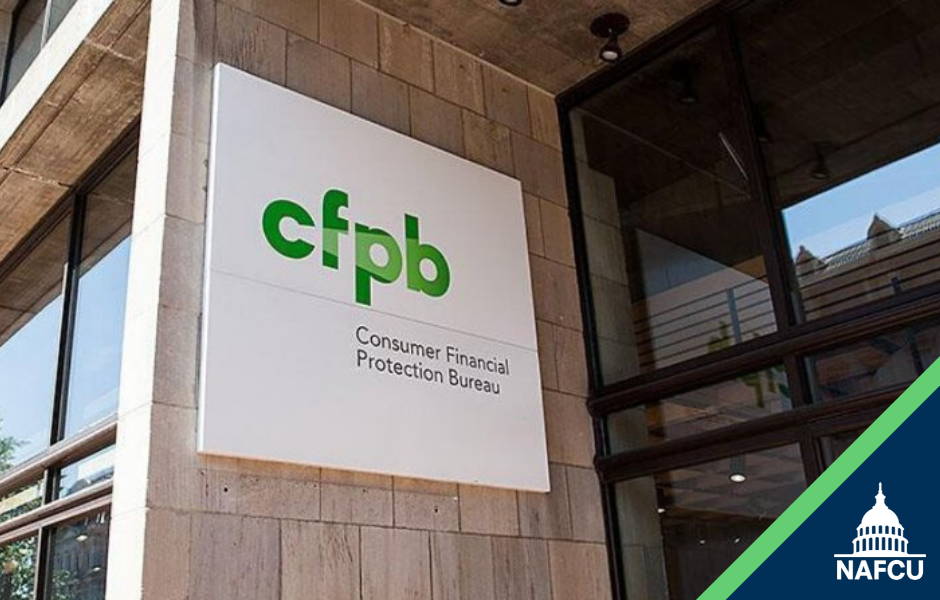Newsroom
CFPB releases new credit card market report
 Yesterday, the Consumer Financial Protection Bureau (CFPB) released its biennial report on the state of the credit card market for 2019-2020, which found overall declines in credit card debt and increases in digital engagement due to changing consumer habits from the pandemic.
Yesterday, the Consumer Financial Protection Bureau (CFPB) released its biennial report on the state of the credit card market for 2019-2020, which found overall declines in credit card debt and increases in digital engagement due to changing consumer habits from the pandemic.
Other key findings from the report include:
· Consumer balances fell in 2020 due to the pandemic, experiencing the largest 6-month decline in history in the second quarter, with over 25 million credit card accounts entering into some relief program in 2020;
· Since the last report in 2019, credit card issuers have lowered the range of their daily limits on debt collection calls for delinquent cards but have increased the use of email; and
· Innovations in expanding access to credit increased with the rise of buy now, pay later products.
The report notes that the CFPB conducted a review of the regulations under section 610 of the Regulatory Flexibility Act and will release the agency’s determination of that review this upcoming Fall. In terms of other rulemaking efforts, the CFPB is expected to issue the final rule on transition away from LIBOR in January 2022. NAFCU has previously shared with the CFPB that the 2009 CARD Act has added significantly to credit unions' compliance costs.
In addition, the report notes that the CFPB is exploring options to incorporate racial data in its data sources to inform future work as existing data available does not allow the CFPB to examine the disparity in use, cost, and availability of credit cards by racial group.
The biennial report is required by the Credit Card Accountability and Responsibility Disclosure (CARD) Act and was first the responsibility of the Federal Reserve System's Board of Governors, but transferred to the CFPB with the passage of the Dodd-Frank Act. It is published every two years.
Share This
Related Resources
Add to Calendar 2024-06-26 14:00:00 2024-06-26 14:00:00 Gallagher Executive Compensation and Benefits Survey About the Webinar The webinar will share trends in executive pay increases, annual bonuses, and nonqualified benefit plans. Learn how to use the data charts as well as make this data actionable in order to improve your retention strategy. You’ll hear directly from the survey project manager on how to maximize the data points to gain a competitive edge in the market. Key findings on: Total compensation by asset size Nonqualified benefit plans Bonus targets and metrics Prerequisites Demographics Board expenses Watch On-Demand Web NAFCU digital@nafcu.org America/New_York public
Gallagher Executive Compensation and Benefits Survey
preferred partner
Gallagher
Webinar
Add to Calendar 2024-06-21 09:00:00 2024-06-21 09:00:00 The Evolving Role of the CISO in Credit Unions Listen On: Key Takeaways: [01:30] Being able to properly implement risk management decisions, especially in the cyber age we live in, is incredibly important so CISOs have a lot of challenges here. [02:27] Having a leader who can really communicate cyber risks and understand how ready that institution is to deal with cyber events is incredibly important. [05:36] We need to be talking about risk openly. We need to be documenting and really understanding what remediating risk looks like and how you do that strategically. [16:38] Governance, risk, compliance, and adherence to regulatory controls are all being looked at much more closely. You are also seeing other technology that is coming into the fold directly responsible for helping CISOs navigate those waters. [18:28] The reaction from the governing bodies is directly related to the needs of the position. They’re trying to help make sure that we are positioned in a way that gets us the most possibility of success, maturing our postures and protecting the institutions. Web NAFCU digital@nafcu.org America/New_York public
The Evolving Role of the CISO in Credit Unions
preferred partner
DefenseStorm
Podcast
AI in Action: Redefining Disaster Preparedness and Financial Security
Strategy
preferred partner
Allied Solutions
Blog Post
Get daily updates.
Subscribe to NAFCU today.
